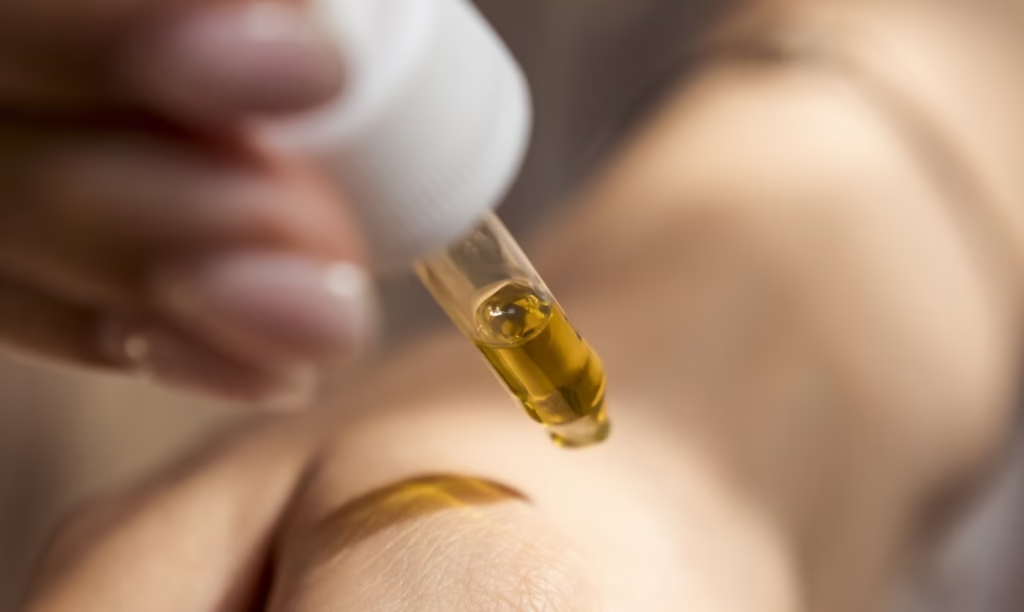Beauty Trends
The beauty care industry is continuously evolving with new trends and innovations that cater to various skin types and concerns. What’s particularly interesting for 2025 are the shifts towards personalization, sustainability, and technology-driven solutions. Here are some of the standout beauty care trends to look out for specially curated by Women by Ramya.

Personalized Skincare
AI-Driven Solutions: Advances in AI and machine learning will lead to more personalized skincare routines. Devices and apps that analyse your skin type, environment, and lifestyle will create customized skincare regimens that are tailored to your unique needs.
DNA-Based Skincare : Some brands are already exploring DNA-based skincare, offering products that are formulated based on your genetic predisposition to certain skin conditions like acne, aging, or sensitivity. This will be a major trend as technology advances in 2025.
Sustainable Beauty
Eco-friendly Packaging: The skincare industry will continue to embrace sustainable packaging, such as biodegradable, recyclable, and reusable containers. Expect more brands to adopt refillable and zero-waste packaging to minimize plastic waste.
Plant-Based and Eco-Conscious Ingredient: There will be a greater focus on plant-based ingredients and formulations that are cruelty-free and sourced responsibly. Consumers will be looking for more organic, clean beauty products that align with sustainability values.
Microbiome-Friendly Skincare
Gut-Skin Connection : As the importance of the skin microbiome becomes more understood, skincare products that promote healthy skin microbiota will be on the rise. These products will help balance the skin’s natural ecosystem, which is vital for skin health, helping to treat conditions like acne, eczema, and rosacea.
Probiotics and Prebiotics : Skincare formulations containing probiotics, prebiotics, and postbiotics will become more common, helping to maintain a healthy skin microbiome and promote overall skin balance.
Skin Health Tech
At-Home Devices: In 2025, more consumers will be using advanced at-home skincare devices. From LED masks to microcurrent tools, these devices allow for professional-grade treatments at home, making skincare more accessible and affordable.
AI-Powered Diagnostics : Smart skincare devices will be able to track changes in your skin over time. These devices will analyse skin health, provide real-time feedback, and suggest products or treatments that are specific to your skin’s needs.
Anti-Pollution and Environmental Protection
Urban Skincare: As environmental concerns continue to grow, skincare products will increasingly focus on protecting skin from urban pollution, blue light, and environmental stressors. These products will contain antioxidants and protective ingredients that defend against damage caused by pollution, UV rays, and digital screens.
Barrier Repair Products : Strengthening and maintaining the skin’s protective barrier will be a focus. Products that help reinforce the skin’s natural defences against external stressors will become more prominent.
Minimalist Skincare Routines
Simplified Regimens : The 10-step skincare routine might be replaced by simpler, more effective regimens. In 2025, consumers will prioritize fewer products with multi-functional benefits. These products will target multiple skin concerns (like anti-aging, hydration, and brightening) in one go.
Streamlined Ingredients : The trend will be to use fewer, but more potent, ingredients. Expect products with fewer synthetic ingredients and more powerful natural actives.
Skin Care Supplements
Beauty from Within : The beauty industry is rapidly embracing the idea of beauty supplements, such as collagen, biotin, and adaptogens, that promote healthier skin. In 2025, these supplements will be more advanced, with personalized formulas based on skin type, age, and specific skin concerns.
Nutricosmetics : Expect to see more beauty drinks, powders, and pills that focus on promoting skin elasticity, hydration, and radiance, combining skincare with wellness.
Smart Sunscreens
Advanced Sun Protection : Sunscreens will evolve to provide more than just UV protection. Future sunscreens will offer additional benefits like blue light protection and deeper hydration. These products may also contain skin-repairing ingredients to mitigate sun damage.
Invisible and Weightless Formulas : Consumers will demand sunscreens that are lightweight, non-greasy, and invisible on the skin, making them easy to wear under makeup or on their own.
Clean Beauty and Non-Toxic Ingredients
Safe Formulations : Clean beauty will continue to rise, with an emphasis on non-toxic, effective skincare. Consumers will demand more transparency in product ingredients, with a focus on avoiding harmful chemicals like parabens, sulphates, and artificial fragrances.
Plant-Powered Ingredients : Expect a stronger focus on plant-based ingredients like CBD, algae, and superfoods, which offer powerful skin benefits without synthetic chemicals.
Regenerative Skincare
Stem Cell Technology : The use of stem cells, both plant-based and human-derived, to regenerate and repair skin will become more prominent. These cutting-edge technologies will help address signs of aging and promote skin regeneration at a cellular level.
Growth Factors : Expect skincare products that incorporate growth factors to stimulate collagen production and improve skin’s overall health.
Conclusion
In 2025, skincare will continue to embrace technological innovations, eco-friendly solutions, and personalized treatments. With an emphasis on sustainability, wellness, and advanced ingredients, the future of skincare is set to be smarter, more effective, and more aligned with individual skin needs. Whether it’s through AI-driven routines, at-home devices, or lab-grown skincare ingredients, 2025 promises to bring a new era of innovation in beauty and skincare.

Scalp Health as a Priority
Recognizing that a healthy scalp is the foundation for vibrant hair, there’s a growing emphasis on scalp care. Products targeting scalp health, such as exfoliating treatments and serums, are gaining popularity.
Sustainable and Clean Beauty
Consumers are increasingly seeking hair care products with natural, sustainably sourced ingredients. Brands are responding by offering eco-friendly formulations free from harmful chemicals, aligning with the clean beauty movement.
Technological Advancements
The integration of technology is revolutionizing hair care:
AI-Powered Personalization : Artificial intelligence is being utilized to provide personalized hair care recommendations, tailoring products and routines to individual needs.
Smart Hair Tools : Devices like infrared hair dryers and smart straighteners that adjust heat based on hair type are becoming mainstream, minimizing damage and enhancing styling efficiency.
Innovative Ingredients
The use of advanced ingredients is on the rise:
Peptides : Incorporated into hair care products for their potential to strengthen hair and promote growth.
Plant-Based Extracts : Natural ingredients like rosemary and sage are being explored for their benefits in promoting hair growth and overall health.
Embracing Natural Textures
There’s a notable shift towards embracing natural hair textures, with products specifically designed for curly and textured hair gaining prominence. This movement celebrates individuality and reduces reliance on chemical treatments.
Non-Aerosol Dry Shampoos
In response to environmental concerns, non-aerosol dry shampoos are emerging as sustainable alternatives, offering effective oil absorption without the use of propellants.
AI-Powered Hair Styling
Artificial intelligence is being integrated into hair styling tools to offer personalized styling recommendations and techniques, enhancing user experience and results.
Hair Care Robotics
Innovations in robotics are leading to the development of devices capable of performing tasks such as hair washing, scalp massages, and even intricate styling, offering convenience and precision.
These trends reflect a holistic approach to hair care in 2025, emphasizing health, personalization, and environmental responsibility.


